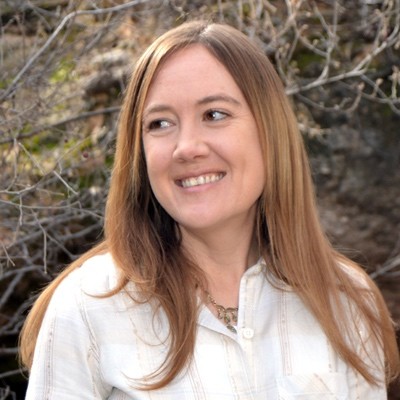
Chera Hammons
Poetry
Chera Hammons is a winner of the 2017 PEN Southwest Book Award. Her work appears or is forthcoming in Beloit Poetry Journal, Foundry, The Penn Review, The Sun, The Texas Observer, Tupelo Quarterly, Valparaiso Poetry Review, and elsewhere. Her most recent poetry collection Maps of Injury, which loosely follows her journey with chronic illness, was released in March 2020 through Sundress Publications. A novel is forthcoming through Torrey House Press. She lives in Amarillo, TX.
Ghazal after the Electrocardiogram
With the cold nodes stuck to my skin, I lie holding the thin sheet to my bare chest
and hoping my heart is not defective, though I know I’ve seen it break
a thousand times. No one speaks but the machine. Like the earth, I’m measured
in mountains. I am weighed in water, my body a shore where mysterious waves break
and vanish. Needles. Nausea and electricity. I grow sea legs. My brother once told me
If you’re that sick, die. I imagined the railroad crossing by his house, how it’d be to not brake
at those flashing red lights. I don’t know how I can want to live and die at the same time,
the prescription bottles on my counter like little prayers, like firebreaks
during a dry year. I don’t remember the first time I told someone I loved them,
or who it was. I remember watching the bloom of summer daybreak
from the back of a fiery red dun mare that died a long time ago.
She ran at the neighbor’s fence one windy day and broke
her neck. I thought if I could get her to stand again, she would live,
though her body was too heavy for me to lift. A broken horse can’t be unbroken.
But it can forget. “Let’s go over these results,” the doctor says. I graph
like an earthquake. The sound in the shaking. The disarrangement when a line breaks.
“
Living with invisible illness is strange. Because I look fine, people often don’t believe the extent of it, and they rarely make allowances for my limitations. Some days I feel almost like myself. Others, getting dressed is a struggle, my brain doesn’t work, I don’t remember where I live. I put shampoo in my hair and forget to rinse it out. I float just ahead of my body. Artificial fragrances set off migraines that last for days sometimes. Sometimes my heart is beating so fast, it’s hard to catch my breath. I can feel so very separated from the world, from meaning, like I’m seeing everything through water. When I publish poems about my experience with chronic illness, my hope especially is that someone in a similar situation will read it and feel that moment of connection that reaches through the fog, to remember that someone else understands. It is a situation in which I believe connection is especially vital.
”
These Habits
Every morning, the coyote passes through
the land that I have called my home,
slips under the pasture fence
and trots northeast toward the canyon,
hidden inside the draw.
The coyote's path was worn when I came here
and still is, as if my human life
has made no impression on this place.
She doesn't go around me.
At first, I laughed at her audacity.
Then I started every day to watch for her.
She comes from across the road,
hesitates, reads the wind in both directions
and casts her question like a water-witcher.
I have seen her flatten into invisibility
when cars pass. I have seen her snap soundlessly
at flies. She pants. The rough roll of her winter coat
hangs at her hips as she sheds,
as if she wears a half-discarded cloak.
She is there, and then she vanishes,
and there isn't any proof she stood
so long in the ironweed weighing her risk.
She doesn't make mistakes.
Once she is satisfied with her loneliness,
the way she slides under the fence is a breath out.
She leaves tufts of hair in the yuccas
like mementos for a lover to keep.
The hair is coarser than a horse's on my palm.
There is a secret between us.
Her silence that betrays it:
how it means she knows that I am near.
She knows that I'm her danger.
“
My house is built on land that used to belong to the Frying Pan Ranch. Even though I’ve lived here for seven years, it feels like I am an outsider. Though I can affect this small acreage to a minor extent, a large part of it is and will always be out of reach. The land is harsh, and it is not controllable. I alternate between being an observer and being an imposter. Sometimes it seems like everything wants to harm me. Many plants that grow here are spiny, poisonous, or both; they draw blood. I clash with rattlesnakes, scorpions, centipedes, wasps, and countless fire ants. My husband and I have actually both become allergic to fire ant stings since moving here. The wind almost never stops blowing. We either flood, or we live in drought and grassfire, with no in-between. All that aside, this place has its own kind of attraction. You can see for miles. I spend a lot of time just standing at my windows looking out, and that is where much of my work comes from.
”

